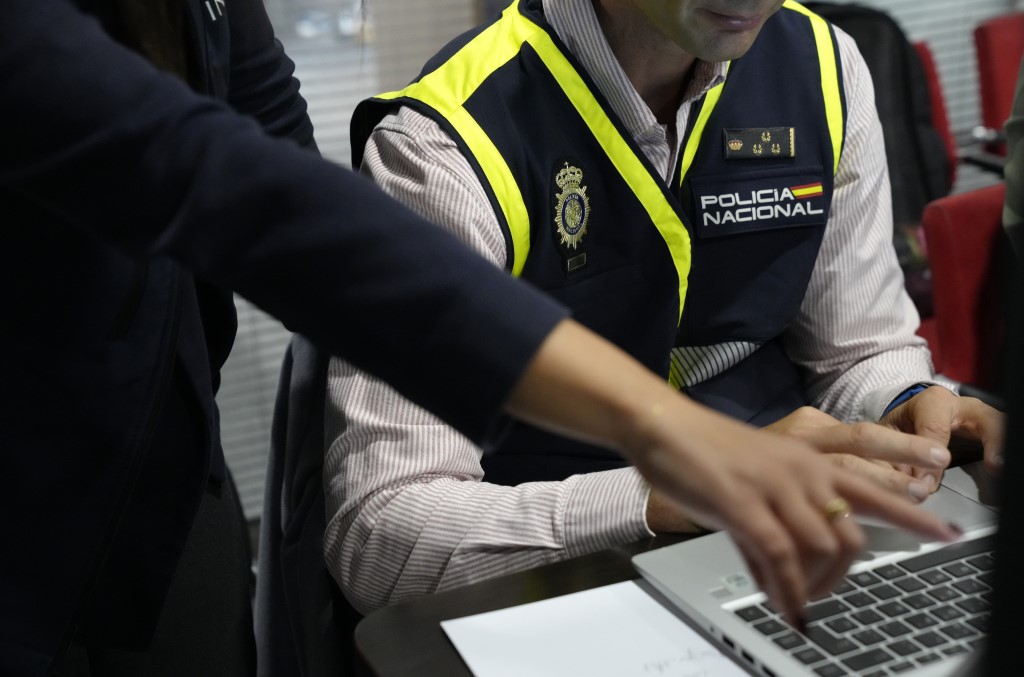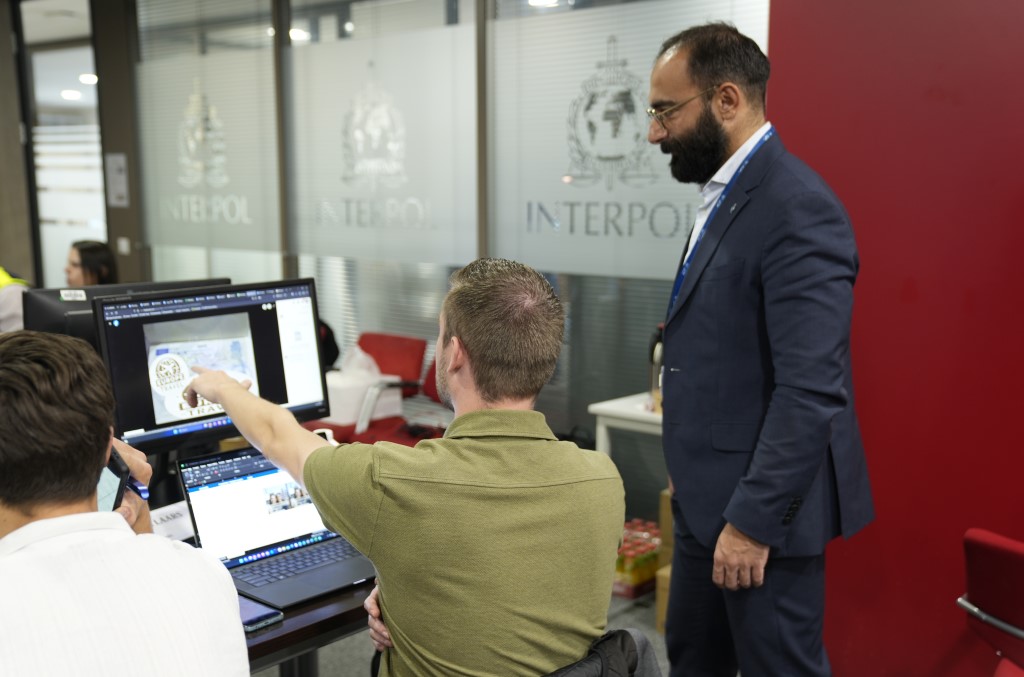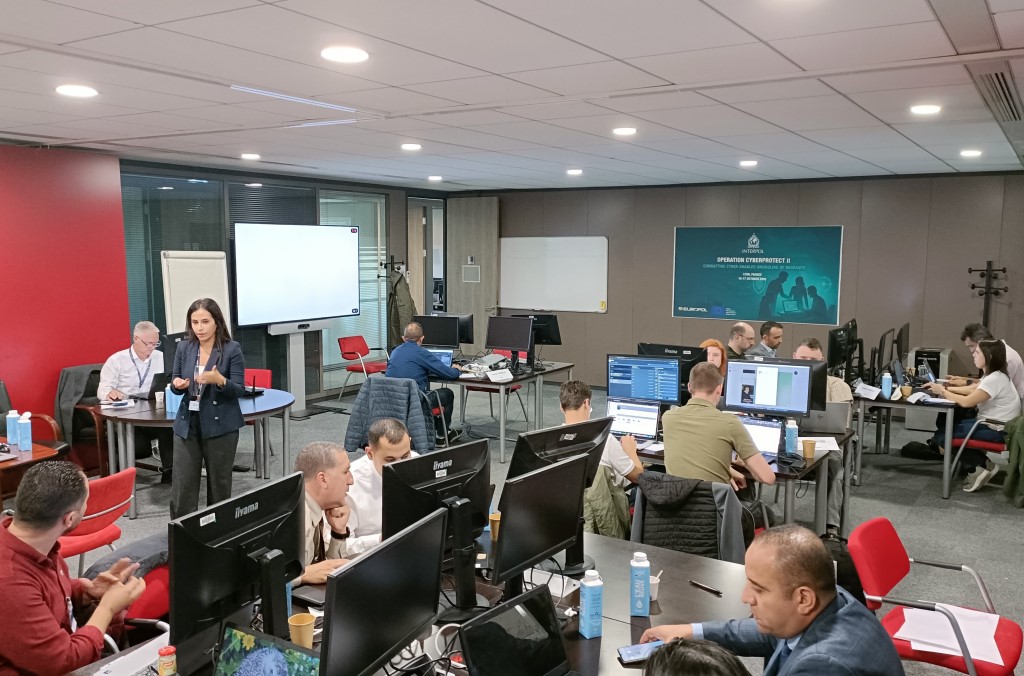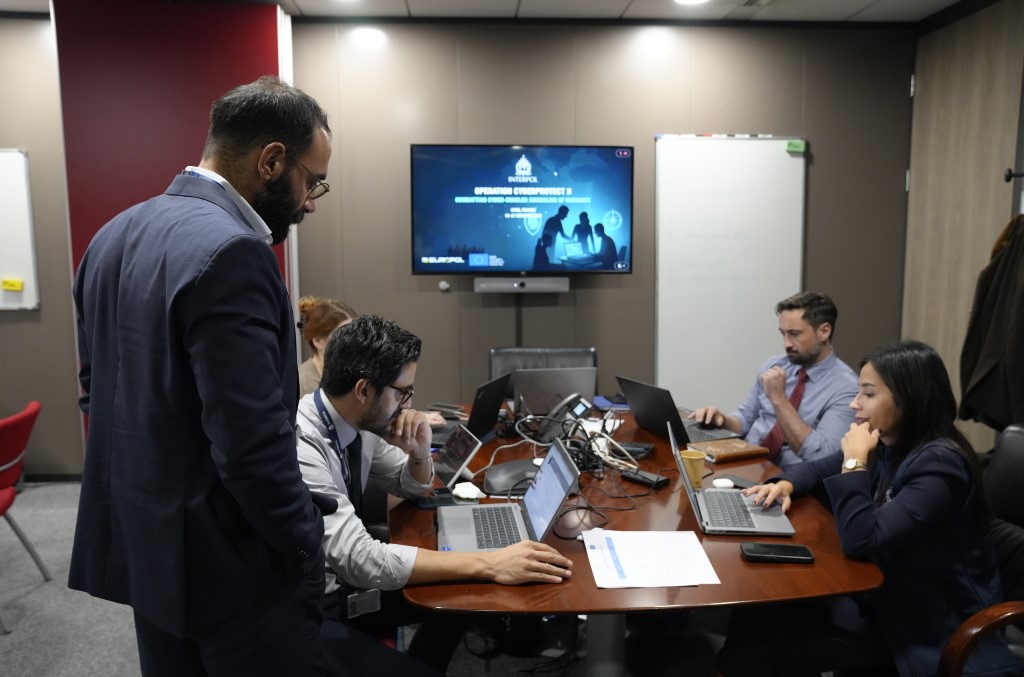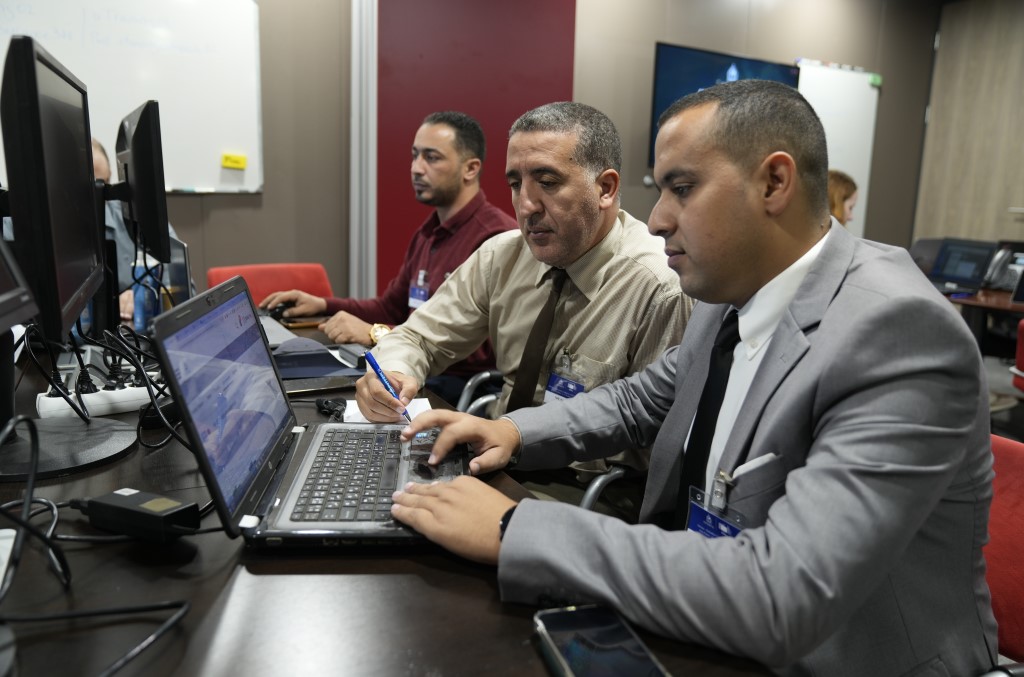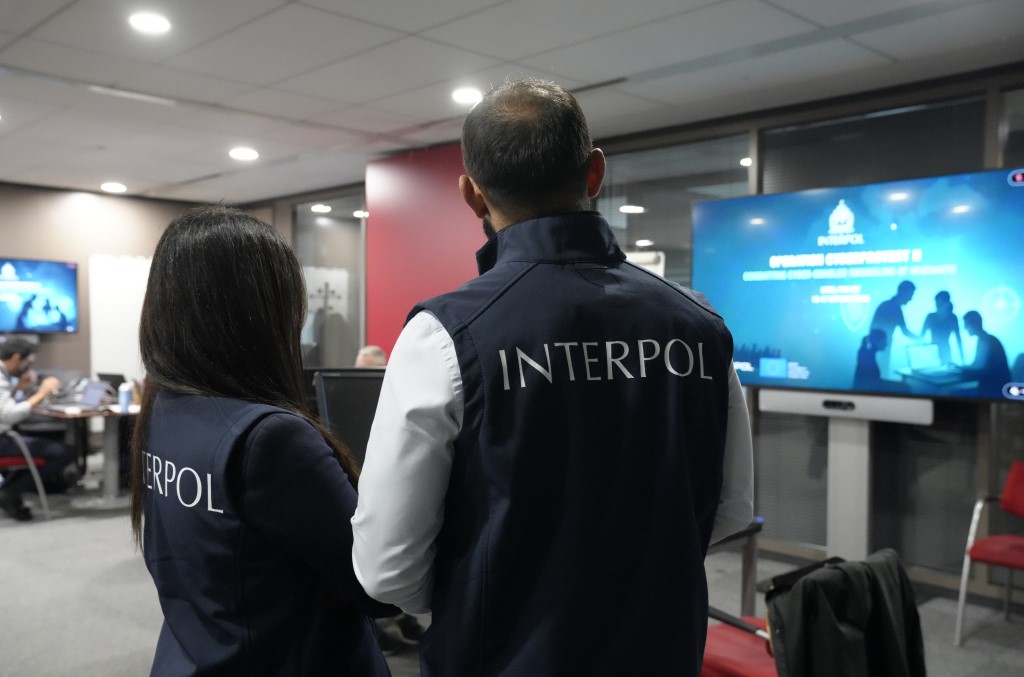LYON, France – Ten countries have taken part in a three-day ‘hackathon’, resulting in the identification of hundreds of incidents, URLs, user handles and phone numbers potentially linked to cyber-enabled smuggling of migrants.
Operation Cyberprotect II (15 to 17 October), hosted at INTERPOL’s headquarters in Lyon, brought together 15 police officers from Europe and northern Africa to identify and investigate online migrant smuggling activities, with the aim of disrupting criminal networks operating across the Mediterranean region.
During the operation, co-organized by INTERPOL and Europol, officers from participating countries worked side by side to extract data from websites, social media platforms and messaging apps.
The preliminary results from the three-day probe led to the detection of:
- 269 unique user handles and URLs across various social media and messaging platforms
- 79 potential facilitators and smugglers
- 175 incidents related to offers of travel, travel documents and travel guidance
- 81 telephone numbers registered in 29 different countries
- 14 travel and identity documents issued by 11 different countries
This data included qualitative intelligence on those who advertise, offer, negotiate, organize and facilitate irregular migration online. This included:
- Dozens of social media accounts promoting or offering facilitation for crossings from Türkiye or northern Africa to various European countries by boat
- Several examples of messaging accounts offering fake passports and IDs
- Groups advertising crossings for a range of prices, ranging from EUR 1,400 (from France to UK), and EUR 4,000 (from Greece to France), up to EUR 12,000 (Libya to Italy)
- Scraped messaging accounts and groups that provided advice, routes and guidance for people attempting to enter Europe irregularly
- Multiple hits of telephone numbers, usernames and other data against INTERPOL and Europol databases
David Caunter, Director of Organized and Emerging Crime at INTERPOL, said:
“INTERPOL analysis shows that migrant smuggling is increasingly facilitated by online tools. Collaborating in real time provides police with a unique opportunity to develop emerging investigations and gather vital intelligence that will be used to initiate new cases and support ongoing ones. This work is crucial in helping member countries dismantle the criminal networks that profit from vulnerable people and expose them to risk.”
During Operation Cyberprotect II, participating officers were supported by INTERPOL’s capabilities in facial recognition, cybercrime and criminal analysis. Hundreds of data points, including 176 facial images were also crosschecked against INTERPOL’s databases.
Europol deployed a specialist and an analyst to Lyon during the exercise, while a team of Open Source Intelligence experts supported from Europol headquarters in the Hague.
Notes to editors
The operation was co-organized by INTERPOL and Europol, with support from META, S2W and the University of Malta. It was financed by the EU–in the framework of Project Himaya–and Europol.
Participating countries:
Cyprus, France, Italy, Libya, Morocco, Portugal, Spain, The Netherlands, Tunisia and the United Kingdom




